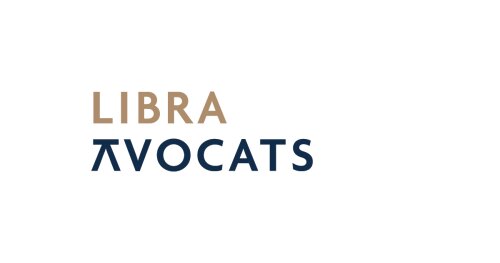Best Class Action Lawyers in Diekirch
Share your needs with us, get contacted by law firms.
Free. Takes 2 min.
List of the best lawyers in Diekirch, Luxembourg
About Class Action Law in Diekirch, Luxembourg
Luxembourg does not have US-style class actions. Instead, it offers collective redress through two main avenues. First, several claimants with similar disputes can join their cases in ordinary civil proceedings. Second, Luxembourg has implemented an EU-based representative action system for consumer matters. Under this system, a qualified consumer organization can bring a court case for injunctive orders and for redress on behalf of consumers who are affected by the same trader conduct. In the north of the country, many collective civil cases are heard by the District Court of Diekirch, with appeals going to the Court of Appeal in Luxembourg City.
For residents and businesses in and around Diekirch, this means that consumer mass harm issues such as unfair fees, misleading advertising, defective products, or large-scale data breaches can sometimes be pursued collectively, either by joining claims or through a representative action led by a qualified entity. The choice of path depends on the type of claim, who is affected, and the relief sought.
Why You May Need a Lawyer
Although collective tools exist, navigating them can be complex. You may benefit from a lawyer in situations such as:
- You purchased a defective product or service and many other consumers had the same issue, and you want to know if there is a representative action you can join.
- You suffered financial loss from unfair commercial practices, hidden fees, or misleading promotions by the same trader that affected many consumers.
- Your personal data was exposed in a data breach and you are considering collective redress or coordinated individual claims.
- Your flight, package tour, or event was canceled or significantly changed and you want to coordinate recovery with other affected customers.
- You suspect anti-competitive behavior that led to overcharges and want to understand whether coordinated litigation is feasible.
- You received a notice about a representative action and need advice on whether to opt in, what deadlines apply, and what evidence to provide.
- You are a local business in Diekirch facing a potential representative claim and need defense counsel to manage risk, settlement, or compliance steps.
- You want to explore alternatives like mediation or regulatory complaints that might resolve your dispute faster than court litigation.
Local Laws Overview
- Representative actions for consumers: Following EU law, Luxembourg allows qualified entities to bring actions against traders for breaches of consumer protection rules. These cases can seek injunctive orders to stop unlawful practices and redress measures such as compensation, repair, replacement, price reduction, contract termination, or reimbursement. Only designated qualified entities can bring such actions. Consumers may be invited to opt in for monetary redress. Injunctions, once granted, typically bind the trader without each consumer needing to appear.
- Who can bring a representative action: Individuals generally cannot file a representative action on their own. A recognized consumer organization or other qualified entity must lead the claim. Consumers can still pursue their own case or join with others in traditional civil proceedings if appropriate.
- Scope of consumer laws: Representative actions can cover a wide range of EU consumer law areas, including unfair commercial practices, product safety and liability interfaces, financial services to consumers, travel and passenger rights, e-commerce, digital services, privacy and data protection, energy and telecom services, and platform marketplaces, among others.
- Court structure in Diekirch: The Tribunal d’arrondissement de Diekirch hears most civil cases for the northern region, including higher-value consumer matters and collective joinder cases. Lower-value consumer disputes may start before a Justice of the Peace. Emergency injunctions can be sought in summary proceedings before the president of the district court. Appeals go to the Court of Appeal in Luxembourg City.
- Procedure and evidence: Luxembourg does not have US-style discovery. Each side presents its evidence, though the court can order the production of specific documents. Written submissions are central. Hearings are typically in French. German is widely used for documents, and Luxembourgish may be accommodated for spoken communication, but procedural records are usually in French.
- Costs and fee rules: Luxembourg generally applies a loser-pays cost principle for court fees and certain legal costs, subject to limits. Pure contingency fee agreements are not permitted, though a success-based supplement on top of a base fee may be possible. Third-party funding is not expressly prohibited but should be carefully reviewed. Courts can require security to prevent abusive litigation, particularly in representative actions.
- Settlements: In representative actions, a settlement that affects a group of consumers usually requires court approval to ensure fairness and clarity. An approved settlement can become binding under the terms set by the court.
- Time limits: Limitation periods apply and can be strict, varying by claim type. Some run from the date of harm, others from the date you reasonably discovered the breach. Do not delay. Ask a lawyer to identify and preserve your deadlines.
- Alternatives to court: Mediation and consumer ombuds services can offer faster, lower-cost resolution. Regulatory complaints to sector regulators or the data protection authority can prompt corrective action that complements or substitutes litigation in certain cases.
Frequently Asked Questions
What is the difference between a class action and a representative action in Luxembourg
Luxembourg does not have US-style class actions where one plaintiff represents a class by default. A representative action is brought by a qualified consumer organization on behalf of consumers against a trader for breaches of consumer law. Consumers may need to opt in for compensation. Individuals can also coordinate ordinary lawsuits through joinder when their cases are closely related.
Can I start a representative action myself
No. Only a qualified entity, typically a consumer organization meeting legal criteria, can file a representative action. You can support such an action, opt in if invited for redress, or bring your own individual claim with or without joining others.
What kinds of problems can be addressed through a representative action
Common areas include unfair commercial practices, subscription traps, unlawful contract terms, defective or unsafe consumer products, airline or travel disruptions, misleading green claims, hidden banking or insurance fees for consumers, telecom billing issues, online platform practices, and data protection violations affecting many consumers.
How do I know if there is a representative action I can join
Qualified entities announce actions and participation conditions. Consumer associations and the Ministry responsible for consumer protection typically publicize such cases. A local lawyer or the Diekirch bar can help you check eligibility and deadlines.
What will it cost me to participate
Costs depend on the case and the qualified entity’s rules. Consumers who opt in to a representative action are usually shielded from the trader’s legal costs if the case is lost, but confirm the terms. For individual or joined cases, the loser-pays rule may apply, subject to court limits and any legal expense insurance you may have.
Will I need to provide evidence
Yes. Keep purchase records, contracts, emails, invoices, screenshots, notices, and any correspondence. In a representative action, the qualified entity will coordinate evidence. In ordinary joined cases, each claimant must prove their loss and causation with their own documents.
How long do these cases take
Timing varies. Injunctions in summary proceedings can be relatively fast. Monetary redress cases can take many months or longer, especially if expert evidence is needed or if there are appeals. Settlements can shorten the timeline.
What if my case involves another EU country
Cross-border representative actions are possible. A qualified entity from another EU state may bring a case in Luxembourg, and Luxembourg entities may act abroad. Jurisdiction and applicable law rules will determine where and how the case proceeds. A lawyer can assess the best forum.
Will my data be protected if I participate
Yes. Consumer organizations and courts must comply with data protection rules. Only necessary information is shared, and filings limit access to sensitive data. Ask how your personal data will be handled before opting in.
Are there alternatives to going to court
Yes. You can try mediation, the Consumer Ombudsman, sector regulators for telecoms, energy, or finance, or company complaint processes. These can provide quick and practical outcomes, sometimes alongside or instead of court proceedings.
Additional Resources
- Union Luxembourgeoise des Consommateurs - consumer association that can advise on collective consumer issues and may act as a qualified entity.
- Médiateur de la consommation - the national consumer ombuds service for out-of-court dispute resolution.
- CNPD - the data protection authority for privacy and data breach matters that may affect large groups of consumers.
- Institut Luxembourgeois de Régulation - regulator for telecoms, energy, and postal services, useful for sector complaints and guidance.
- CSSF - financial sector supervisor for consumer issues involving banks, payment services, and insurance intermediaries.
- Tribunal d’arrondissement de Diekirch - the district court handling civil matters in the northern region, including consumer disputes and injunctions.
- Barreau de Diekirch - the local bar association to find a lawyer experienced in consumer and collective redress matters.
- European Consumer Centre Luxembourg - information and assistance for cross-border consumer problems within the EU.
Next Steps
- Write down your story: Dates, who was involved, what you bought or signed, and what went wrong. Note all communications with the trader.
- Preserve evidence: Contracts, receipts, order confirmations, screenshots, emails, invoices, photos, and any notices. Do not alter electronic files.
- Check eligibility: Ask a consumer association or a lawyer whether a representative action exists that you can join, or whether joinder of individual claims is more suitable.
- Act early: Limitation periods can be strict. A lawyer can send a demand letter, start a complaint with a regulator or ombuds, or file to suspend limitation if needed.
- Consider settlement and mediation: These can save time and cost. Your lawyer can negotiate terms that protect your rights and ensure enforceability.
- Choose representation: Contact a lawyer admitted to the Barreau de Diekirch with experience in consumer and collective matters. Ask about fees, funding options, and a plan for evidence and timelines.
- Stay informed: If you join a representative action, follow the qualified entity’s updates and provide requested documents promptly to protect your claim.
This guide is for information only and does not replace legal advice. For personalized guidance, consult a lawyer familiar with collective redress in Diekirch and Luxembourg law.
Lawzana helps you find the best lawyers and law firms in Diekirch through a curated and pre-screened list of qualified legal professionals. Our platform offers rankings and detailed profiles of attorneys and law firms, allowing you to compare based on practice areas, including Class Action, experience, and client feedback.
Each profile includes a description of the firm's areas of practice, client reviews, team members and partners, year of establishment, spoken languages, office locations, contact information, social media presence, and any published articles or resources. Most firms on our platform speak English and are experienced in both local and international legal matters.
Get a quote from top-rated law firms in Diekirch, Luxembourg — quickly, securely, and without unnecessary hassle.
Disclaimer:
The information provided on this page is for general informational purposes only and does not constitute legal advice. While we strive to ensure the accuracy and relevance of the content, legal information may change over time, and interpretations of the law can vary. You should always consult with a qualified legal professional for advice specific to your situation.
We disclaim all liability for actions taken or not taken based on the content of this page. If you believe any information is incorrect or outdated, please contact us, and we will review and update it where appropriate.










